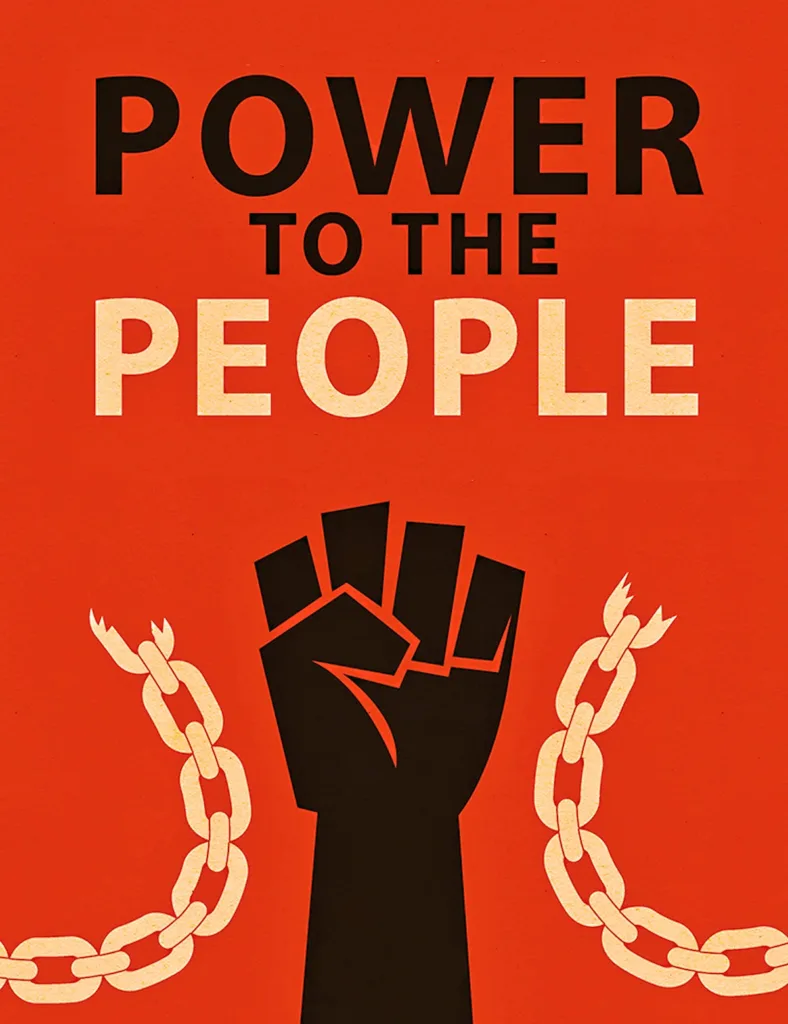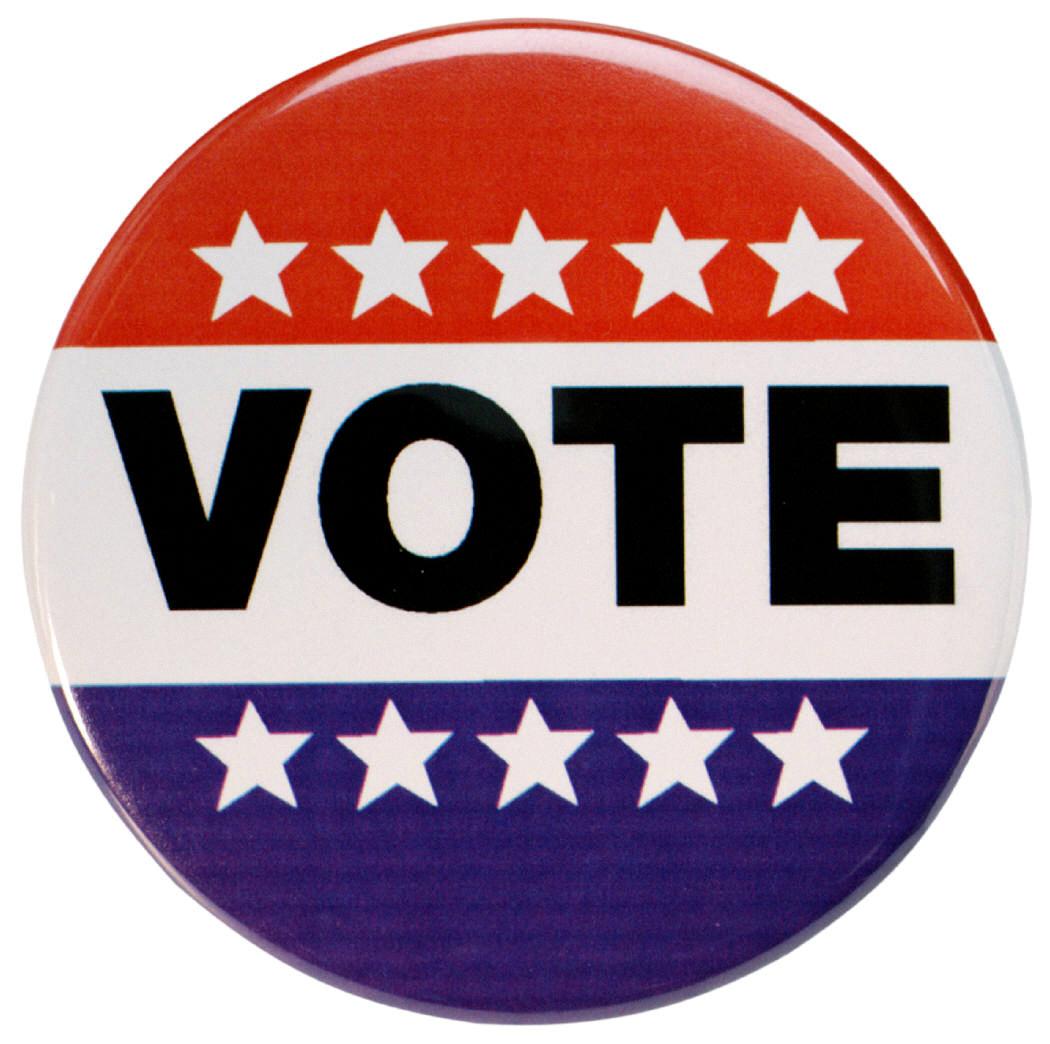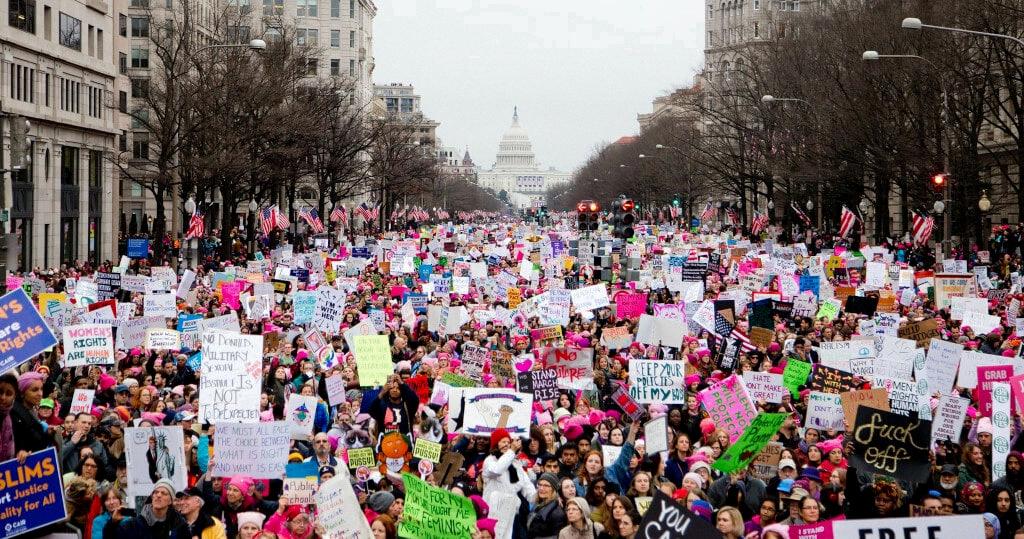Popular sovereignty is a doctrine that asserts that the ultimate power resides with the people, and the government is created by and subject to their will. This principle is enshrined in the United States Constitution and has been a cornerstone of American democracy for over two centuries. In this blog post, we will explore some examples of popular sovereignty in action.
One of the most significant examples of popular sovereignty in the United States is the right to vote. The 15th Amendment to the Constitution, ratified in 1870, prohibited the government from denying citizens the right to vote based on race, color, or previous condition of servitude. The 19th Amendment, ratified in 1920, extended this right to women, and the 26th Amendment, ratified in 1971, lowered the voting age to 18. These amendments reflect the belief that the power of the government derives from the consent of the governed, and that every citizen has the right to participate in the democratic process.
Another example of popular sovereignty is the concept of federalism. The United States is a federal system, which means that power is divided between the federal government and the states. This division of power was designed to ensure that the government remained accountable to the people, and that the states cold exercise their own sovereignty within their borders. The Tenth Amendment to the Constitution explicitly states that powers not delegated to the federal government are reserved to the states or to the people. This means that issues such as education, public health, and criminal justice are primarily the responsibility of state and local governments, reflecting the belief that the people are best served by government that is closest to them.
The concept of popular sovereignty is reflected in the idea of majority rule. In a democracy, decisions are made by the majority of citizens, and the government is responsible for carrying out these decisions. This principle is reflected in the Constitution’s provision for the election of representatives to the House of Representatives and the Senate. These representatives are chosen directly by the people, and are accountable to them for their actions. In addition, the Constitution provides for the election of the President through the Electoral College, a system that ensures that the President is chosen by a majority of citizens across the country.
Popular sovereignty is a fundamental principle of American democracy, and is reflected in many aspects of our government and society. From the right to vote to the concept of federalism, the power of the people is at the heart of our system of government. By understanding and appreciating these examples of popular sovereignty, we can ensure that our democracy remains strong and vibrant for generations to come.
Examples of Popular Sovereignty in the Constitution
The Constitution of the United States reflects the principle of popular sovereignty in several ways. Firstly, the Preamble to the Constitution begins with the words “We the People”, which emphasizes the idea that the power of the government flows from the people. This principle is also reflected in the structure of the government, which is designed to represent the people’s interests.
Secondly, the Constitution provides for the election of representatives and senators by the people. Article I of the Constitution pertains to the House of Representatives, which is made up of members elected directly by the people. Similarly, the 17th Amendment requires senators to be elected by the people of their respective states.
The principle of popular sovereignty is reflected in the process of amending the Constitution. The Constitution can only be amended throgh a process that involves the approval of the people. The proposed amendment must be ratified by three-fourths of the states, which effectively ensures that the will of the people is respected.
The Constitution of the United States is a cornerstone of popular sovereignty, as it emphasizes the power of the people and provides them with a voice in the government through the election of representatives and senators, as well as the process of amending the Constitution.

Definition of Popular Sovereignty and Example
Popular sovereignty is a political theory that emphasizes the ultimate authority and power of the people. It asserts that the legitimacy of government is based on the will of the people, who have the right to determine how they are governed. This means that the people have the power to elect their leaders, adopt laws, and make decisions through democratic processes.
One example of popular sovereignty is the pre-Civil War doctrine in the United States that allowed territories to decide whether or not to allw slavery. This meant that the people living in those territories were given the power to make a decision that would ultimately affect their lives and the future of their community. This doctrine was based on the idea that the people who lived in the territories were best suited to make decisions about their own governance, rather than having those decisions made for them by a distant central government. This example illustrates how popular sovereignty empowers the people to make important decisions about their lives and their communities.
Popular Sovereignty and the U.S. Constitution
The Tenth Amendment is an example of popular sovereignty. This amendment, added to the United States Constitution in 1791, states that any power not specifically granted to the federal government by the Constitution is reserved for the states or for the people. This means that the people have the ultimate power to choose their own government and make decisions abut their own lives. The Tenth Amendment protects this power by ensuring that the federal government does not overstep its authority and encroach on the rights of the states or the people. It is a key principle of our democracy and an important safeguard against tyranny and abuse of power. Therefore, the Tenth Amendment is a clear example of popular sovereignty in action.
The Use of Popular Sovereignty
Popular sovereignty, also known as “squatter sovereignty,” was first used in the 1840s in the United States as a response to debates over western expansion and the issue of slavery. The concept was popularized by politicians such as Lewis Cass and Stephen A. Douglas who argued that in a democratic society, residents of a territory should be allowed to decide whether or not to allow slavery within ther borders. This idea was put into practice with the passage of the Kansas-Nebraska Act in 1854, which allowed settlers in these territories to decide on the issue of slavery through popular sovereignty. However, this policy ultimately failed as it led to violent conflicts between pro-slavery and anti-slavery factions, such as the Bleeding Kansas crisis. After the Civil War and the abolition of slavery, popular sovereignty was no longer used as a means to decide on the issue of slavery. Today, popular sovereignty is still used as a concept in democratic governance, particularly in the context of self-determination for people and territories seeking independence or autonomy.
The Meaning of Popular Sovereignty in Modern Society
Popular sovereignty is a fundamental principle in today’s society that emphasizes the idea that the ultimate source of authority resides with the people. It means that the people are the ones who have the power to govern themselves, and they have the right to decide how they want to be governed. This concept is reflected in democratic societies where people have the right to vote and elect teir leaders.
In practice, popular sovereignty means that the government is accountable to the people and must act in their best interests. It also means that the government’s power is limited by the will of the people. The government can only exercise authority if it has been given permission to do so by the people. Therefore, popular sovereignty serves as a check on the government’s power and ensures that the government is working for the people.
In modern times, popular sovereignty is reflected in the constitutions of democratic countries where the people are considered the ultimate source of power. It also manifests itself in the form of protests, demonstrations, and other forms of civil disobedience where people express their views and demand that their voices be heard. popular sovereignty is a vital principle in today’s society that recognizes the importance of individual rights and freedoms and ensures that the government is accountable to the people it serves.

Source: unit1projectbrown707.weebly.com
Is Popular Sovereignty Demonstrated by We The People?
“We the People” is an example of popular sovereignty. Popular sovereignty is a principle of democracy that holds that the ultimate power of the government resides with the people. In the context of the United States Constitution, “We the People” refers to the idea that the Constitution is founded on the will of the people, not on the authority of a king or a ruling class. This concept of popular sovereignty is expressed in the Preamble of the Constitution, wich states that the Constitution is established by and for the people of the United States. The phrase “We the People” is a powerful declaration of this principle, emphasizing that the authority of the government derives directly from the people themselves. The concept of popular sovereignty is essential to the functioning of democracy, as it ensures that the government is accountable to the people and that the people have the power to shape the direction of their government.
The Definition of Popular Sovereignty
Popular sovereignty is a political concept that asserts that all political power resides in the people. This means that the people are the ultimate source of authority in a democratic society, and that government is created and sustained by the will of the people. In a system of popular sovereignty, the people have the rigt to directly participate in the governance of their society through democratic processes such as voting, and they also have the right to hold their government accountable for its actions. This principle is fundamental to democratic systems of government and is enshrined in many national constitutions around the world. popular sovereignty is a crucial element of democratic governance, as it ensures that the people have a say in how they are governed and that the government exists to serve their interests.
Examples of Sovereignty
An exmple of sovereignty is when a nation or state possesses the power to govern itself without external interference. This means that the ruling government has complete control over its territory, citizens, and resources, and can make decisions without needing approval from other countries or international organizations. For instance, a monarch who has complete control over his or her kingdom and can make decisions without any interference from other nations or external forces is an example of sovereignty. Similarly, a democratic government that has the power to make laws, enforce them, and represent its citizens without external pressure or influence is also an example of sovereignty. In essence, sovereignty refers to the supreme power of a state or nation to govern itself and make decisions without any external interference.
Popular Sovereignty: Where Was It Used?
Popular sovereignty is a political doctrine that emerged in the United States during the mid-19th century. It is the idea that the people of a particular territory should have the right to determine for themselves whether to enter the Union as a free or slave state. This doctrine was particularly relevant in the context of the debate over the expansion of slavery into new territories.
Popular sovereignty was used in several instances during the mid-19th century. It was initially proposed by Senator Lewis Cass of Michigan as a way to resolve the controversy surrounding the status of slavery in newly acquired territories. The idea gained prominence during the 1848 presidential election, when both the Democratic and Whig parties endorsed it as a way to avoid taking a firm stance on the issue of slavery.
The concept of popular sovereignty was put into practice in the territories of Kansas and Nebraska in 1854, when the Kansas-Nebraska Act was passed. This law allowed the people of thee territories to decide whether to allow slavery within their borders. The resulting conflict between pro-slavery and anti-slavery factions in the Kansas territory became known as “Bleeding Kansas.”
In the end, popular sovereignty proved to be an ineffective solution to the issue of slavery in the United States. The Kansas-Nebraska Act and the subsequent violence in Kansas only intensified the sectional tensions that would eventually lead to the Civil War. Despite its limitations, however, the concept of popular sovereignty remains an important part of American political history.

Source: constitutionus.com
Popular Sovereignty in the Declaration of Independence
One example of popular sovereignty in the Declaration of Independence is the famous opening sentence: “We the People of the United States.” This phrase establishes that the power to govern originates from the people themselves. It affirms that the people, not a monarch or any othr ruling class, are the ultimate source of authority in the new nation. Throughout the document, the Declaration articulates the idea that the government derives its power from the consent of the governed. This means that the people have the right to alter or abolish their government if it fails to secure their natural rights. Thus, the Declaration of Independence is a clear expression of the principle of popular sovereignty, which holds that the people are the legitimate rulers of their own society.
Popular Sovereignty in the American Revolution
Popular sovereignty in the American Revolution refers to the principle that the authority of the government is derived from the consent of the governed, or the people. It was a key element of the American Revolution, which sought to establish a government that was accountable to the people, rather than to a king or ruling class. This idea was expressed in the Declaration of Independence, which stated that “Governments are instituted among Men, deriving thir just powers from the consent of the governed.” This principle was also reflected in the Constitution, which established a government that was based on the idea of popular sovereignty. The Constitution provided for a system of representative government, in which elected officials would be responsible to the people they represented, and in which the people would have the power to elect their leaders and influence the direction of government policy. popular sovereignty in the American Revolution was a fundamental principle that sought to establish a government that was accountable to the people, and that derived its authority from their consent.
The Benefits of Popular Sovereignty Through Voting
Voting is considered a good example of popular sovereignty as it is the fundamental mechanism through which citizens exercise ther political power and participate in the decision-making process of a democracy. Popular sovereignty refers to the idea that the people hold ultimate authority and power in a democratic society. By voting, citizens not only express their preferences for a particular candidate or political party but also have the ability to hold elected officials accountable for their actions while in office.
Furthermore, the act of voting is a critical component of a representative democracy, as it ensures that the government is responsive to the will of the people. In a representative democracy, elected officials are responsible for representing their constituents and making decisions that reflect their preferences and interests. By casting a vote, citizens are able to choose the individuals who they believe will best represent their values and beliefs in government.
Voting is a prime example of popular sovereignty as it allows citizens to exercise their political power, participate in the decision-making process of a democracy, and hold elected officials accountable for their actions.
The Use of Popular Sovereignty in the United States
Popular sovereignty is a principle of government where the people living in a particular territory or state have the right to determine ther own laws and regulations through voting. Currently, all states in the United States practice popular sovereignty as a fundamental aspect of their democratic systems. This means that citizens of each state have the power to vote on issues such as taxes, education, healthcare, and other policies that affect their daily lives. Additionally, the federal government has also used popular sovereignty in the past, such as with the Kansas-Nebraska Act, which allowed residents of the Kansas and Nebraska Territories to determine their own laws regarding slavery. popular sovereignty is a fundamental principle of democracy in the United States and is practiced in all states.

The Impact of Popular Sovereignty on Slavery
Popular sovereignty was a political concept that allowed the residents of the territories to decide whether to permit or prohibit slavery. This meant that Congress did not have the power to determine whether slavery would be allowed in new territories, but rather the residents of those territories would decide through voting. The idea of popular sovereignty had significant implications for the extension of slavery in the antebellum era. Supporters of slavery believed that popular sovereignty would allw for the expansion of slavery into new territories, while opponents of slavery saw it as a way to limit the spread of slavery. Ultimately, the idea of popular sovereignty did not resolve the issue of slavery in the territories and instead led to increased tensions between pro-slavery and anti-slavery forces, ultimately contributing to the outbreak of the Civil War.
Explaining Popular Sovereignty to a Child
Popular sovereignty is a big phrase that means that the power of the government comes from the people. You know how we vote for our leaders, like the president or the mayor? That’s how we give them permission to make decisions for us. The people who are elected are the ones who have the power to make laws and make sure everyone follows them. So, in a way, we are all in charge because we get to choose who our leaders are. That’s why it’s important to vote and have our voices heard!
Conclusion
Popular sovereignty is a crucial concept in American politics that emphasizes the power of the people in making critical decisions about ther government. The Constitution reflects this principle through various provisions, including the Bill of Rights, the direct election of members of Congress, and the Tenth Amendment. These examples demonstrate the importance of popular sovereignty in ensuring that the government remains accountable to the people it serves. By recognizing the right of citizens to participate in decision-making processes, popular sovereignty ensures that democracy thrives, and the government remains responsive to the needs and aspirations of its citizens. popular sovereignty remains a fundamental principle that continues to shape American politics and democratic governance.
